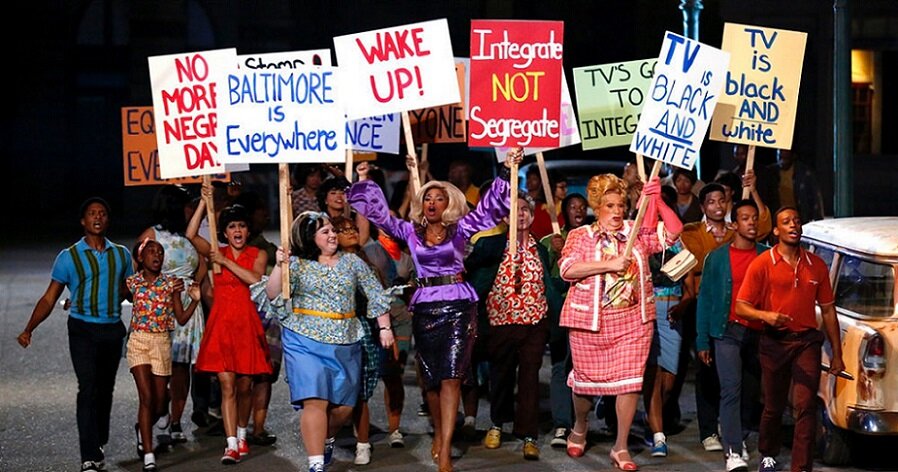"Hairspray" offers a whitewashed portrayal of the civil rights movement
GUEST EDITORIAL
The popular American musical Hairspray has been delighting audiences ever since it made its way to Broadway in 2002, and has remained a fan favorite for its loveable characters, lively score, and choreography, and nostalgic costuming.
The musical is set in the early 1960s during the Civil Rights Movement, which is a very crucial aspect of the plot. The story revolves around Tracy Turnblad and her newfound stardom on the TV show, The Corny Collins Show. Tracy also has a passion for achieving racial equality and desires to share the spotlight with her colleagues of color.
While it may be well-intentioned, Hairspray's representation of racism and the Civil Rights Movement lacks depth, understanding, and actual representation from any people of color in its creative team. It is very evident that the creative team was composed of White people who wrote the show from a White perspective, and likely for a White audience.
Hairspray’s portrayal of racism is most strongly rooted in the character of Velma Von Tussle, the station manager. Right away Velma makes her beliefs clear that the White kids and Black kids should be separated, and that the White kids are superior. However, she is the only one who explicitly states this opinion.
This gives the illusion that racism is simply just one White lady being mean and snarky.
Nearing the end of the musical, Velma is served her “comeuppance" and The Corny Collins Show becomes integrated, and that means racism is over, right?! At least that’s what the upbeat tempo of You Can’t Stop The Beat would have audiences believe.
Another issue in Hairspray’s depiction of the Civil Rights Movement is how Tracy, a White girl, is the hero. This plays into the White Savior trope, and Hairspray certainly isn’t the only form of entertainment to do so. The musical ignores the sacrifices and contributions to the movement by numerous people of color, and makes Tracy the center of the movement.
The audience is shown how hard segregation was for White people when Tracy goes to jail, and we are meant to sympathize with her and keep rooting for her, instead of the actual Black characters. While being an ally to the Black community is certainly important, it’s not about you, Tracy.
While Hairspray centers around fictional characters in a historical movement, there should have been more inclusion of the real Black entertainers who fought during the movement. Entertainers like Sammy Davis Jr., Harry Belafonte, and Nina Simone are examples of real people who Hairspray could have paid homage to, but decided not to.
Additionally, Tracy is the one who suggested marching against racism on The Corny Collins Show, when it would have likely been more logical and realistic for the Black characters to take action. But instead, the Black characters just kind of go along with what Tracy says because she has made herself the leader of the Civil Rights Movement.
Tracy seems to have the mindset that because she gets flack from others for her weight, that she shares in similar and equal challenges faced by the Black community. While people of different body shapes certainly face scrutiny from others, that is not the same as having your mere existence being against the law.
There are times where it seems Tracy thinks integration is “trendy”. In the movie version of the musical, this is supported when Seaweed asks Tracy and Penny to go to a party, and Tracy says that it feels “so hip” to be invited places by “colored people”. Additionally, when Tracy arrives at the party, she describes it as “afrotastic”.
Tracy is completely unaware of her appropriation of Black culture. This is most evident when she uses Seaweed’s dance he taught her in detention to get noticed by Corny Collins. This dance is ultimately what gets her on the show, and she never mentions Seaweed at all or where the dance came from. While Seaweed does give her permission to perform the dance, if she really wants integration on The Corny Collins Show and to support her friends in the Black community, you think she would give due credit.
However, something to consider is that Hairspray was written in 2002, almost 20 years ago, and it is based upon the original movie of the same name from 1988. Society, specifically White people, have come to understand racism and representation much differently than they did when Hairspray was written.
Perhaps the modern viewer can watch Hairspray and enjoy it for its catchy tunes and entertainment value, and for showing us how perceptions of equality have evolved and will continue to evolve.
